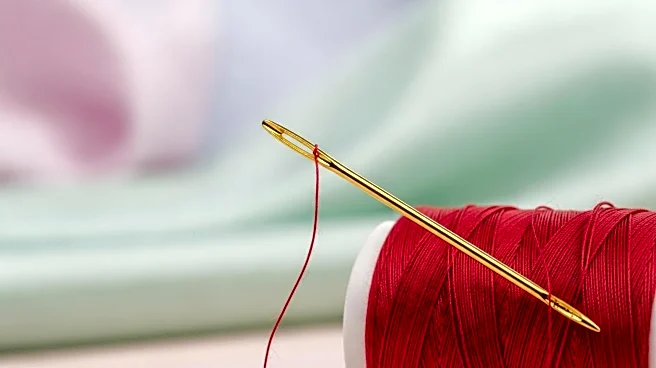What's Happening?
During Milan Fashion Week, Italy's luxury fashion sector is grappling with supply chain scandals involving sweatshop conditions. These scandals have implicated suppliers and subcontractors of major brands like Armani and Dior. Milan prosecutors are investigating violations such as long working hours and low wages. Industry leaders, including Luigi Maramotti of Max Mara, acknowledge cultural differences as a factor but emphasize the need for context. The Italian fashion industry, a significant contributor to the national economy, is under pressure to address these issues to maintain its reputation and economic impact.
Why It's Important?
The supply chain scandals in Italy's fashion industry highlight the ethical and economic challenges facing the sector. As a major player in global luxury fashion, Italy's reputation is at stake, potentially affecting consumer trust and brand value. The industry's response to these issues will be crucial in maintaining its competitive edge and ensuring sustainable practices. The situation underscores the need for transparency and accountability in supply chains, which are increasingly important to consumers and investors. Addressing these challenges is vital for preserving Italy's leadership in the fashion industry and protecting its economic contributions.
What's Next?
Italian lawmakers and industry executives are working to address the supply chain issues before they escalate further. The industry ministry is developing a certification scheme to ensure compliance with labor laws. Labor advocates emphasize the need for brands to scrutinize their sourcing practices. The outcome of these efforts will be critical in restoring confidence in 'Made in Italy' products and ensuring the industry's long-term sustainability. The fashion sector's ability to adapt and implement effective solutions will determine its future resilience and reputation.











